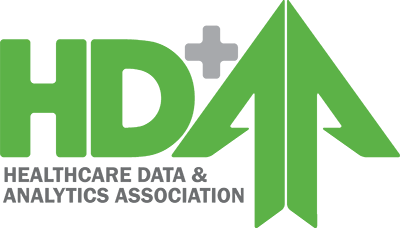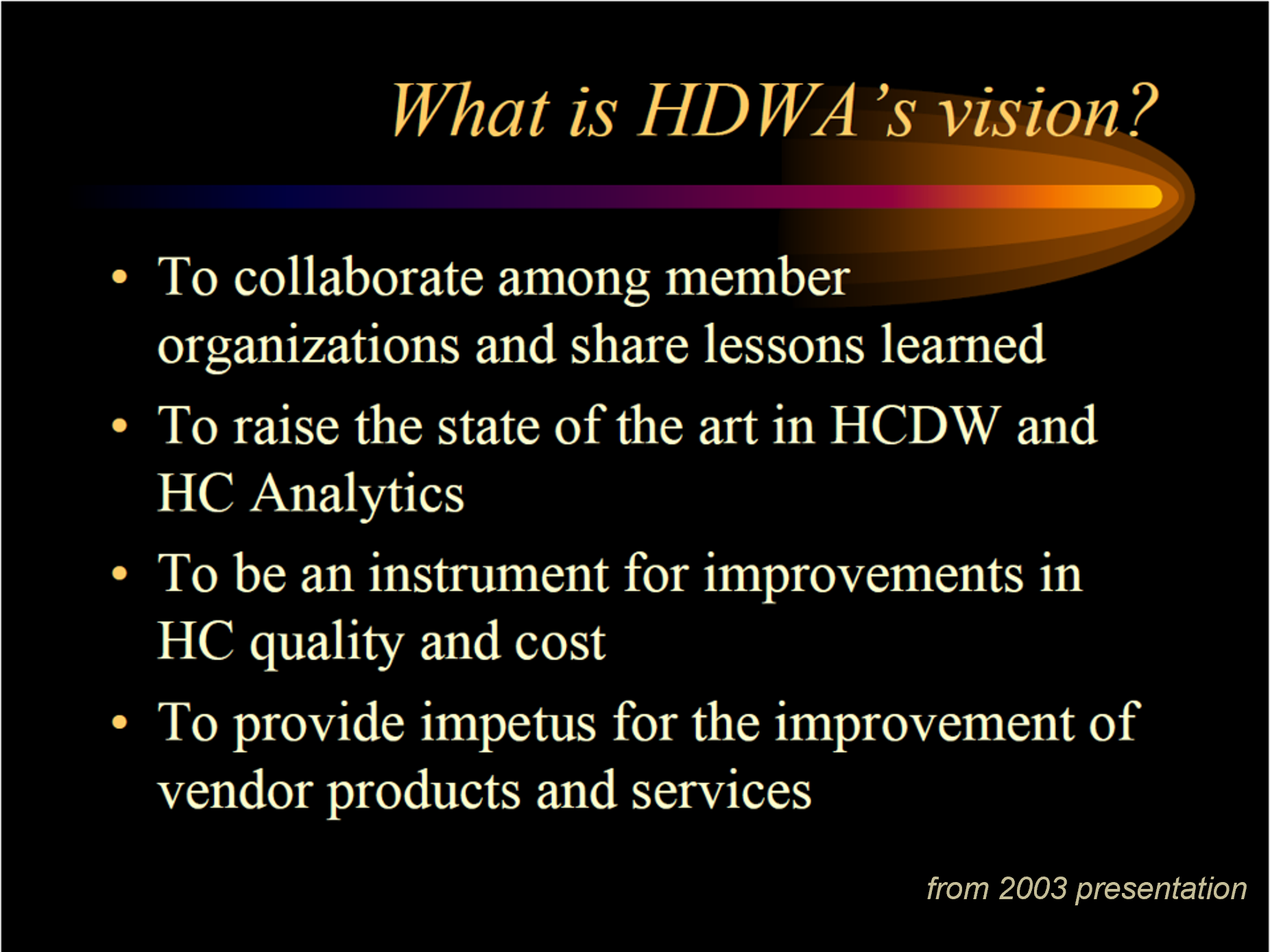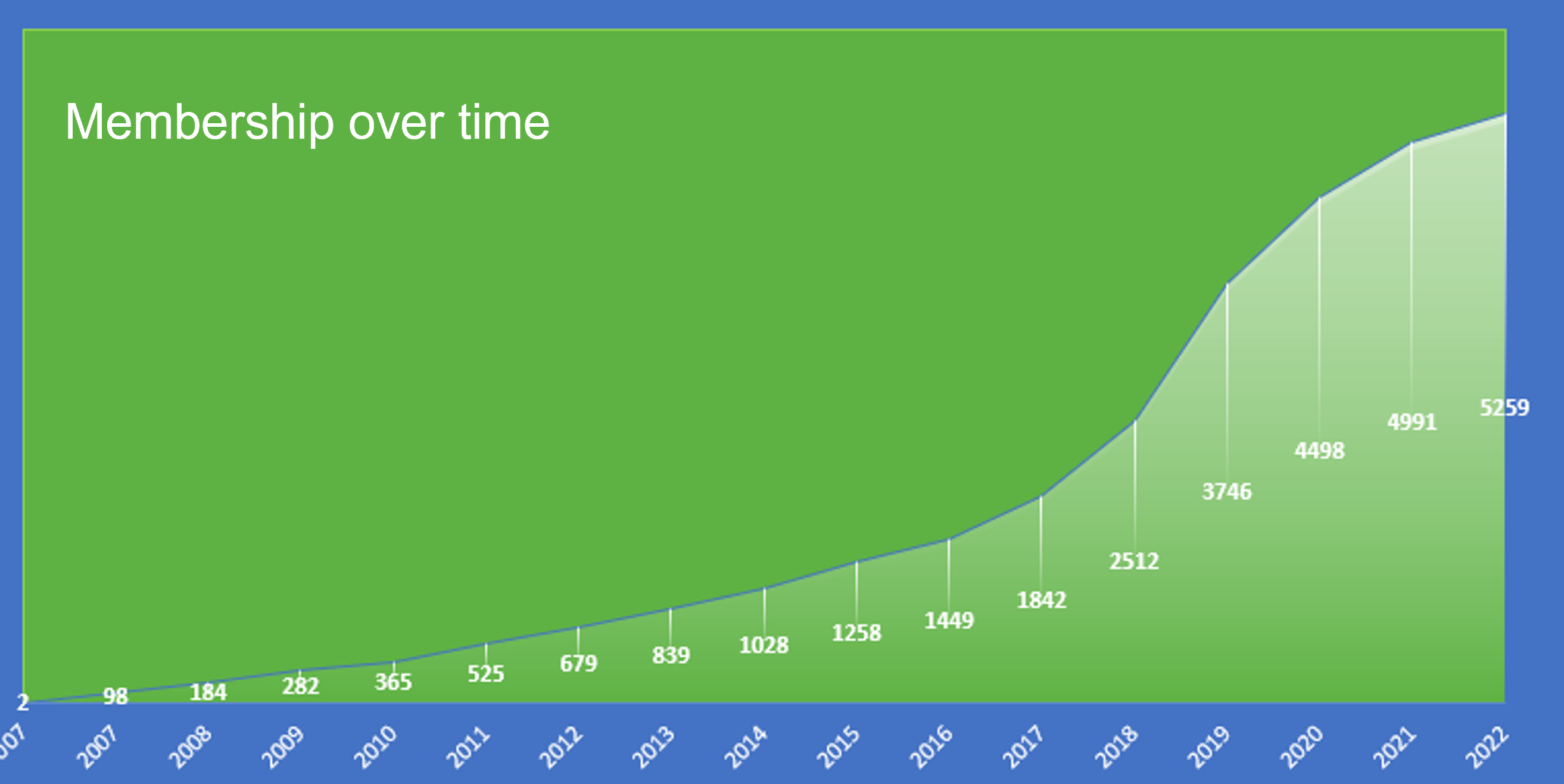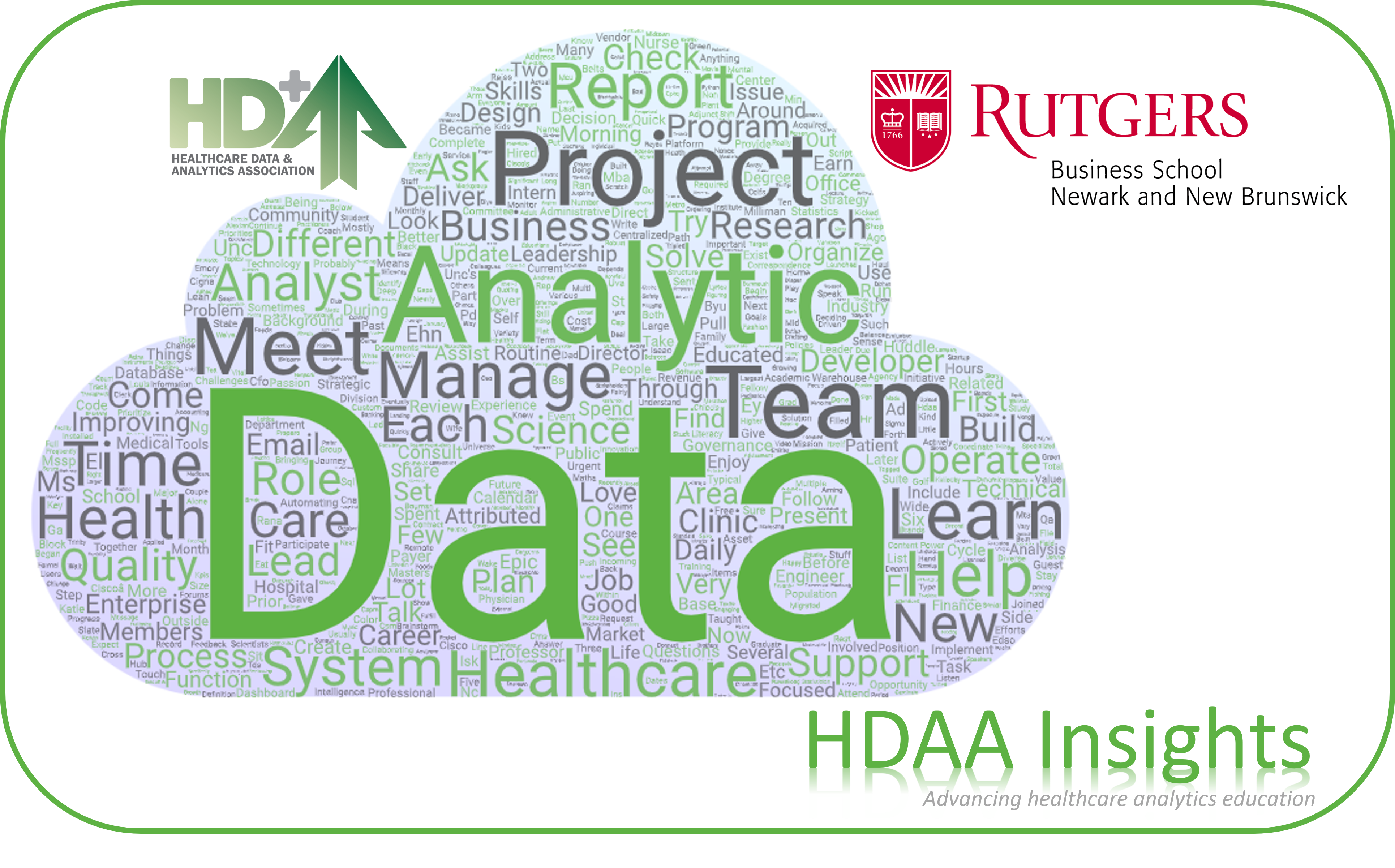The HDAA Story
Our originsIn 2001, individuals from Intermountain Healthcare, Blue Cross Blue Shield of Alabama and Presbyterian Healthcare Services proposed a forum for discussing healthcare data warehousing among their peers, free of the marketing presence that accompanies many technology conferences. That same year, Intermountain hosted the first meeting of what was to become the Healthcare Data & Analytics Association (HDAA).
Over the course of the next four years, the group established membership guidelines – providers large and small, payers, healthcare-related agencies; minimal overhead and an emphasis on volunteers – and adopted the name Healthcare Data Warehousing Association. Our organization’s mission from the beginning and formalized in 2016 when we incorporated under our current name: placing healthcare analytics at the service of improved patient outcomes. Our approach: creating a collegial atmosphere for collaboration among like-minded practitioners of our profession. HDAA grew rapidly as more healthcare systems realized the value of data for operations, patient satisfaction, and most importantly, improved patient outcomes. Prominent contributors to the conversation early on were MD Anderson Cancer Center, Presbyterian Healthcare Services, Baylor Health Care System (now Baylor Scott & White Health), Carolinas Medical Center (Atrium), Sutter Health, Geisinger Health, Mayo Clinic, US Department of Veterans Affairs, Peace Health, SSM Health, Partners Health Care, and Olmstead Medical Center. As of summer 2022, HDAA has more than 5000 members representing hundreds of provider and payer organizations throughout North America and beyond. Our signature event is a three-day annual conference, which resumed in-person in 2022 after two years as a virtual-only event. The conference now attracts up to 400 attendees, and features multiple presentation tracks, poster, expert panels, and open-ended roundtable discussions. In addition to the conference, HDAA hosts online presentations and panel discussions on all manner of topics. The organization also has half a dozen special interest groups, including Women in Analytics, Data Governance, Data Engineering, Data Literacy, and EHR-oriented groups.
The COVID eraSince the COVID-19 pandemic arose in spring 2020, healthcare analytics has been front and center in the national conversation. In response, HDAA hosted more than two dozen town halls (members only link) in 2020 and 2021 devoted to COVID-19 analytics and equity in healthcare delivery. Those discussions encompassed COVID predictive modeling, The COVID Tracking Project’s effort to aggregate case rates nationally, the data challenges of understanding disparities in healthcare, and more. The town halls continue as an online discussion platform for trends in the profession.
Expanding our reach
HDAA’s first public initiative, developed in partnership with the Rutgers Business School, is a webinar series aimed at attracting the next generation of healthcare analytics practitioners. HDAA Insights unites students and others interested in the career with nearly two dozen professionals, the people who perform and manage the daily work of healthcare analytics.
We raise our collective voices, design programs, and educate each other to improve patient/family outcomes. It is complex, hard work but the professional and personal rewards are unparalleled.
|




